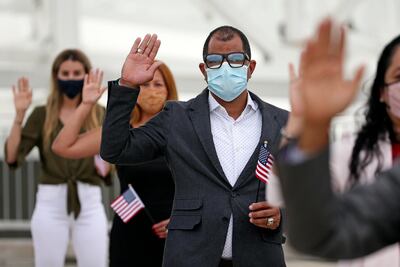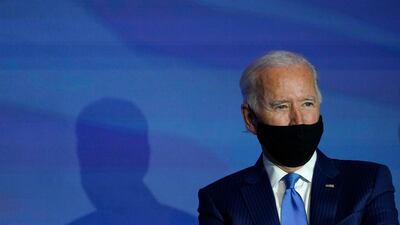On his first day in office next month, US president-elect Joe Biden is set to reverse Donald Trump’s travel ban on 13 majority-Muslim and African nations.
The restrictions on entry for citizens of these countries, described by Mr Trump as a “Muslim ban” during his presidential campaign, were imposed by executive order shortly after he took office in January 2017.
The ban was rewritten after legal challenges and its current format was upheld by the Supreme Court in 2018.
But with Mr Biden taking office on January 20, the travel ban and almost 100 other executive orders issued by Mr Trump could be scrapped.
Under US law, executive orders can be overturned by Congress, the Supreme Court or a sitting president.
Every new president reviews the orders issued by their predecessor and can choose to revoke them with another executive order.
The Biden campaign said four days after the November 3 election that the incoming president planned to reverse many of Mr Trump’s decisions.
These include the travel ban, and returning to the Paris climate agreement and World Health Organisation.
During his campaign, Mr Biden told the Muslim-American group Emgage Action that he was committed to scrapping the ban on his first day in office.
"If I have the honour of being president, I will end the Muslim ban on day one," he said.
The US House of Representatives voted to reverse Mr Trump's travel ban this summer but the bill was not taken up in the Senate.
The No Ban Act would impose limits “on the president's authority to suspend or restrict aliens from entering the United States”, according to a Congressional summary.
It also “prohibits religious discrimination in various immigration-related decisions”.

Mr Biden wants Congress to pass laws to fight the surging number of hate crimes in the US.
“As president, I’ll work with you to rip the poison of hate from our society to honour your contributions and seek your ideas," he said in October.
"My administration will look like America, with Muslim Americans serving at every level."
Hate crimes in the US surged to a record level in 2019, according to an annual report released by the FBI last month.
The US had more hate crimes last year than in any year since 1992 when the FBI started collecting such data.
Fifty-one people were killed in hate crimes in 2019 – a 112 per cent increase from the year before.
But even if Mr Biden issues executive orders to revoke Mr Trump's, they can be challenged in court by pro-Trump groups and could set up early legal battles for the new administration.
Mr Trump attacked the president-elect during the campaign for his intention to lift the travel ban.
_________
















